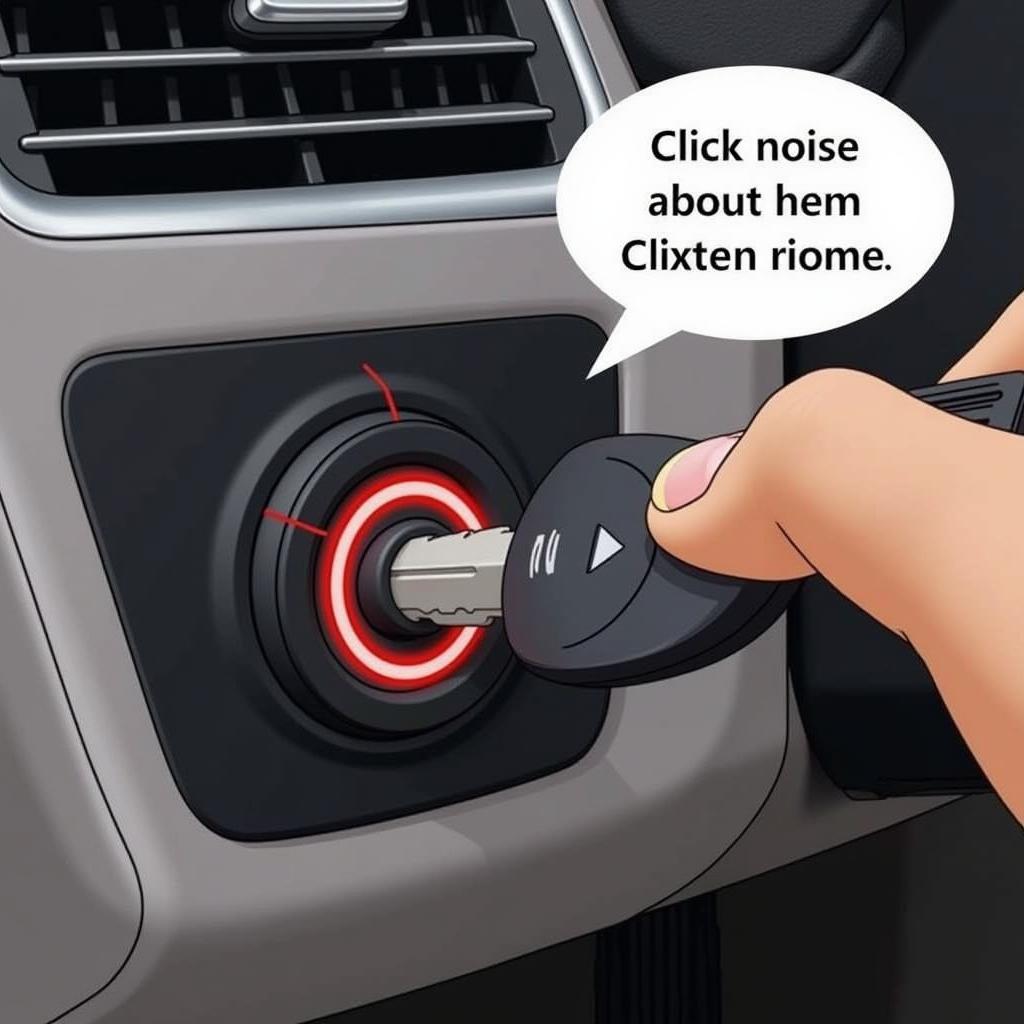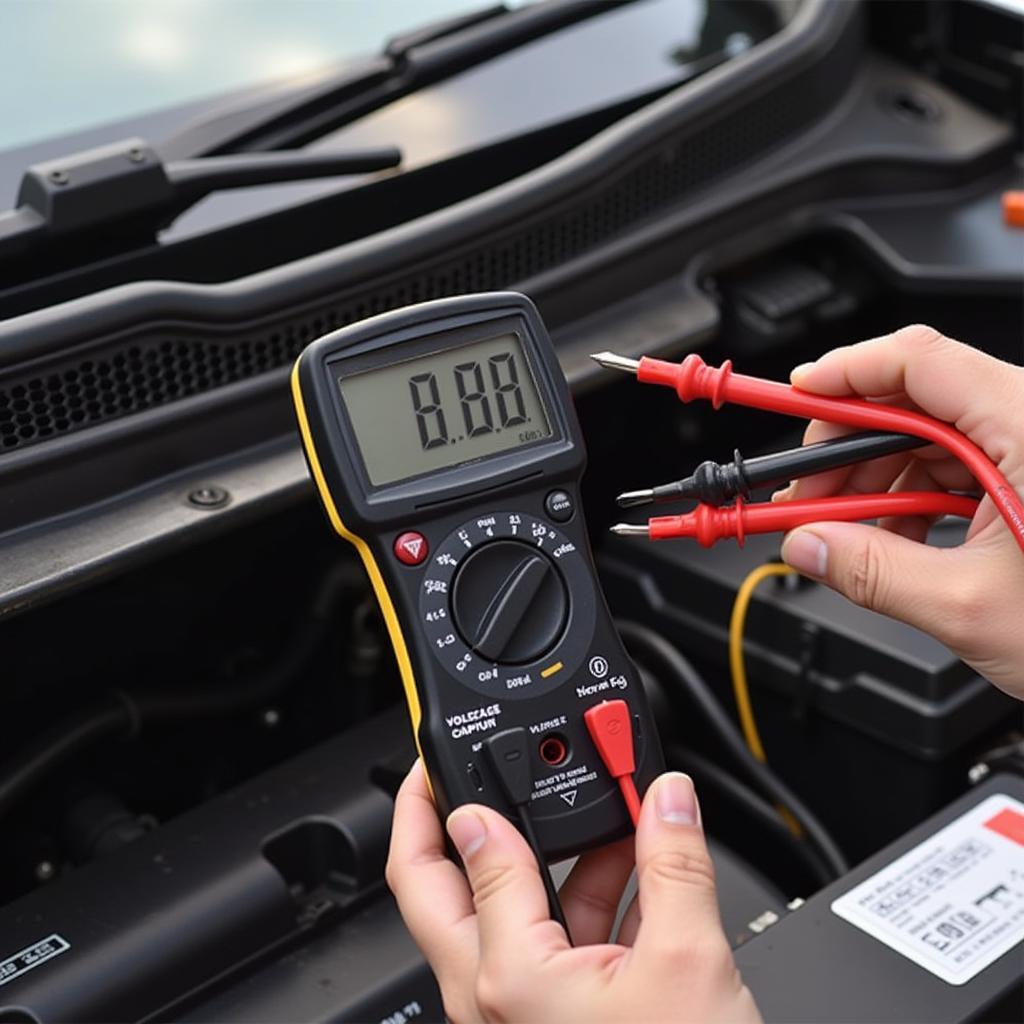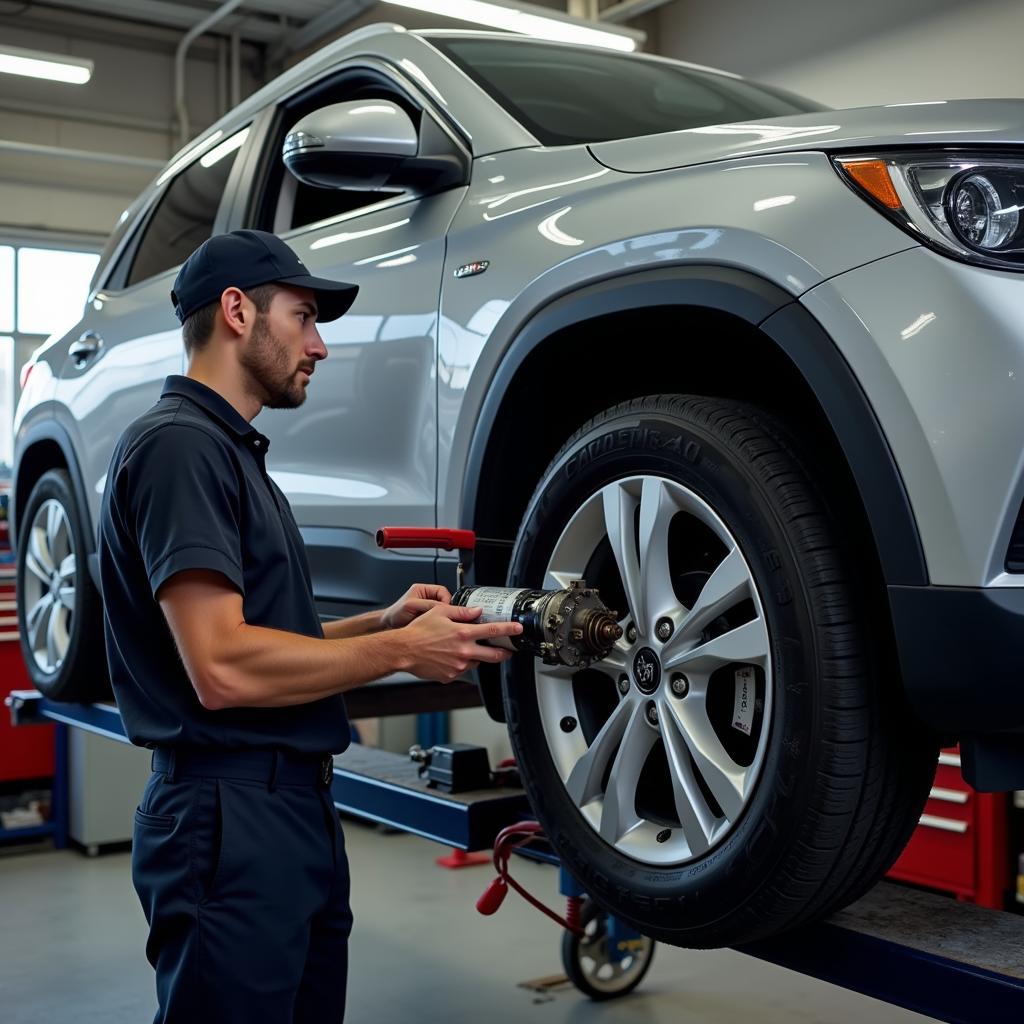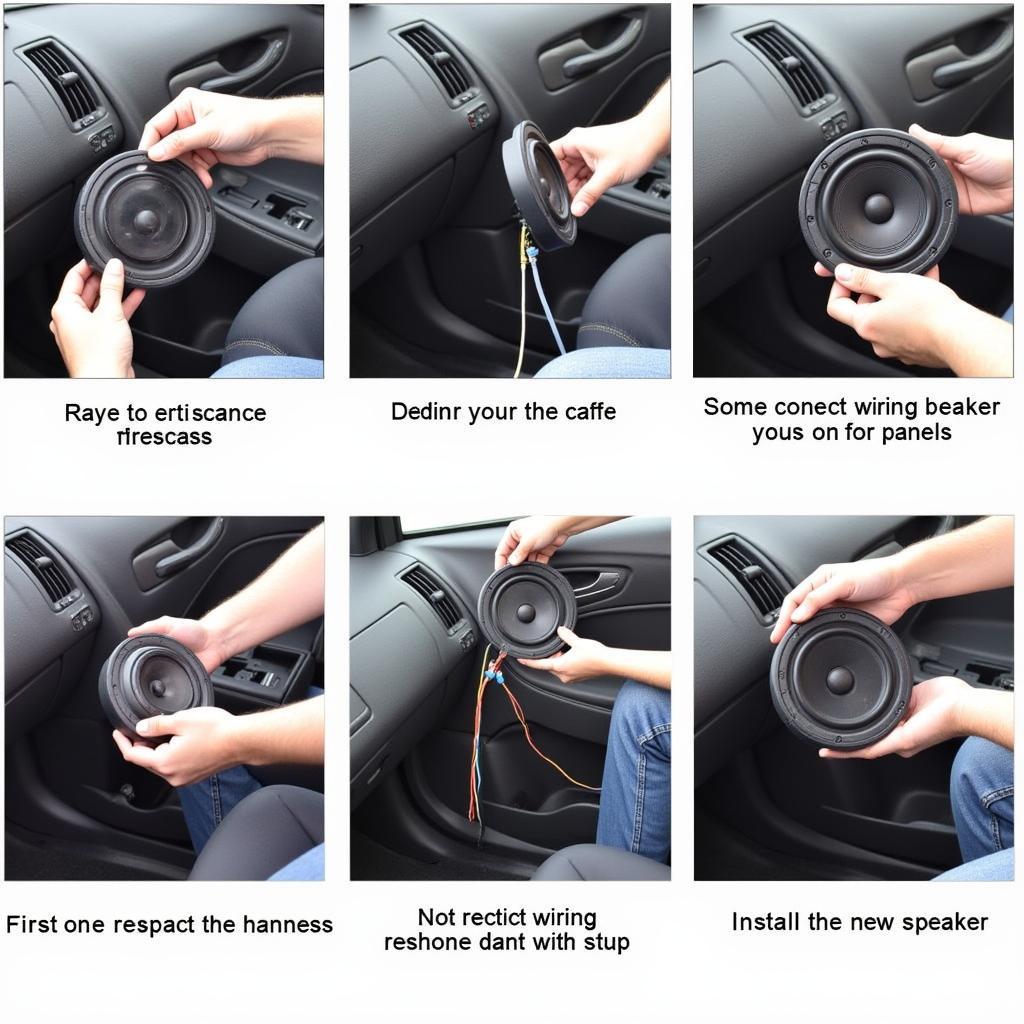Car Ignition Starter Problems can be frustrating, leaving you stranded and unsure of what to do. This guide provides comprehensive information to help car owners, mechanics, and technicians diagnose and resolve car ignition starter problems effectively.
Understanding the car starting system is crucial to pinpoint the issue. The system comprises the ignition switch, starter solenoid, starter motor, and battery. A malfunction in any of these components can lead to a car ignition starter problem. Similar to common car problems and solutions, these starting issues can range from simple fixes to more complex repairs. After this introductory paragraph, we’ll delve into the details of how to troubleshoot this common car issue.
Common Symptoms of a Car Ignition Starter Problem
Recognizing the symptoms is the first step in addressing car ignition starter problems. Some common indicators include:
- Clicking Sound: A clicking noise when you turn the key often indicates a failing starter solenoid or a weak battery connection.
- Grinding Noise: A grinding sound suggests a problem with the starter motor’s gear engaging with the engine’s flywheel.
- No Sound: When you turn the key and hear nothing, it could be a dead battery, a faulty ignition switch, or a blown fuse.
- Slow Cranking: If the engine cranks slowly, the battery might be weak or the starter motor is wearing out.
- Intermittent Starting: The car starts sometimes but not others, pointing towards a loose connection, a faulty ignition switch, or a dying starter solenoid.
 Clicking sound from car ignition switch
Clicking sound from car ignition switch
Diagnosing the Problem
Diagnosing car ignition starter problems requires a systematic approach. Start by checking the battery connections for corrosion or looseness. If the connections are good, test the battery voltage. A weak battery may need a jump start or replacement. If the battery is fine, move on to the starter solenoid and motor. Use a multimeter to test the voltage going to the starter.
What causes a car to not start? Several factors contribute, such as a dead battery, a faulty starter, or a problem with the ignition system. A faulty ignition system can be one of the most frustrating car wiring problems symptoms. Pinpointing the exact cause requires careful diagnosis.
 Testing the voltage of a car battery with a multimeter
Testing the voltage of a car battery with a multimeter
DIY Fixes for Car Ignition Starter Problems
Some car ignition starter problems can be fixed with simple DIY solutions:
- Check Battery Connections: Tighten loose battery terminals and clean any corrosion.
- Tap the Starter: Sometimes, a gentle tap on the starter motor can dislodge stuck internal components and allow it to function.
- Check Fuses: Inspect the fuses related to the ignition and starter circuits. Replace any blown fuses.
car wont start common problems often involve simple checks like these. Taking a few minutes to inspect these basic components can save you a trip to the mechanic.
When to Seek Professional Help
If the DIY fixes don’t resolve the issue, it’s time to seek professional help. A qualified mechanic has the expertise and tools to diagnose and repair complex car ignition starter problems. They can also identify underlying issues that might be contributing to the problem.
For example, a car has problems starting in cold weather due to a weakened battery, but the underlying issue might be a faulty charging system. Addressing both problems is essential for long-term reliability. A mechanic can also quickly diagnose complex problems, such as those described in car wiring problems symptoms.
 Mechanic inspecting car starter motor
Mechanic inspecting car starter motor
Preventing Future Car Ignition Starter Problems
Regular car maintenance can prevent many car ignition starter problems. Ensure regular battery checks, including cleaning the terminals and testing the voltage. Also, have your charging system inspected periodically to ensure it’s functioning correctly.
Just like understanding why does removing car alarm on 1999 saab cause other problems can help you avoid unintended issues, regular maintenance can keep your car running smoothly and prevent future starting problems.
Conclusion
Car ignition starter problems can be inconvenient, but understanding the common causes and solutions can help you get back on the road quickly. Regular maintenance and prompt attention to any starting issues can minimize the risk of being stranded with a car that won’t start. If you need further assistance, feel free to connect with us at Autotippro. Our team of experts is ready to provide you with professional advice and support.
Contact AutoTipPro at +1 (641) 206-8880 or visit our office at 500 N St Mary’s St, San Antonio, TX 78205, United States.
FAQ
- What is the most common cause of car ignition starter problems? A dead battery is often the primary culprit.
- How much does it cost to replace a car starter? The cost varies depending on the car model and labor rates, but it typically ranges from $200 to $500.
- Can I drive with a bad starter? No, once the starter fails completely, you won’t be able to start the car.
- How long does a car starter last? Starters typically last for the lifespan of the car, but they can fail prematurely due to various factors.
- How do I know if my starter solenoid is bad? A clicking sound when turning the key is a common sign of a failing solenoid.
- Can a bad alternator cause starting problems? Yes, a faulty alternator can eventually drain the battery, leading to starting problems.
- Is it difficult to replace a car starter myself? Replacing a starter can be a challenging DIY project, requiring some mechanical skills and tools.





Leave a Reply